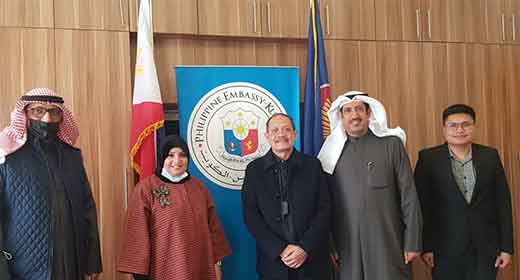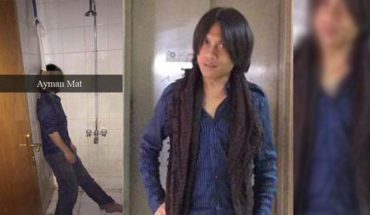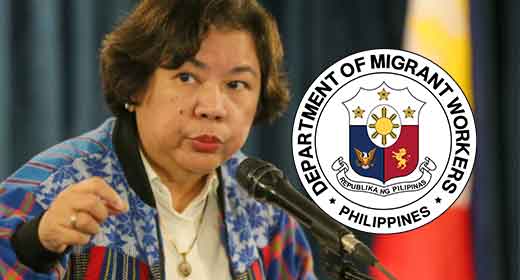One year and two days since the brutal death of Overseas Filipino Worker Jeanelyn Padernal Villavende, the Philippine Embassy in Kuwait has welcomed the decision of the Kuwaiti Court of First Instance on 30 December 2020 which found Villavende’s Kuwaiti employers guilty of killing their Filipina domestic worker.
The court sentenced Villavende’s female employer to death by hanging for premeditated murder, and the male employer to four years in prison for not stopping and reporting the planned murder.
In a statement, the Embassy said that “Ms. Villavende’s case against her abusive employers stood on solid ground—born out of the swift and transparent investigation made by Kuwaiti authorities, and the strong evidence presented before the court against her killers.”
“This legal and moral victory would not be possible without indefatigable leadership of Foreign Affairs Secretary Teodoro L. Locsin Jr., as well as the unwavering support of the Department of Foreign Affairs (DFA),” the Embassy added.
READ ALSO Minister in Kuwait Conveys Condolences Over The Passing Of Filipina Jeanelyn Villavende
For his part, newly accredited Philippine Ambassador to Kuwait Mohd. Noordin Pendosina N. Lomondot expressed his “sincerest gratitude to President Rodrigo Roa Duterte, Secretary Locsin and the DFA, particularly the Office of the Undersecretary for Migrant Workers’ Affairs, for all the assistance that was extended while the Embassy is fighting the case in court.”
“President Duterte’s marching orders are very clear: Protect the Overseas Filipino Worker, especially the most vulnerable. This guided us in bringing to justice the killers of our kababayan, Jeanelyn Villavende,” Ambassador Lomondot said.
Ambassador Lomondot also extended his “deepest gratitude to Sheikha Atty. Fauzia Salem Al-Sabah for her resolute handling of the Villavende murder case, on behalf of the Embassy and the Filipino people.”
Sheikha Fauzia, a Kuwaiti human rights lawyer, also served as the legal counsel for “Marissa,” a Filipina domestic worker who was repatriated by the Embassy on 29 November 2020 after winning her case against a Kuwaiti traffic officer who raped, stabbed multiple times, and left her for dead in 2012.
Villavende’s lifeless body was brought to Al-Sabah Hospital on 28 December 2019 after months of physical abuse and deprivation by her employers. Autopsy results showed the presence of old and healed traumas and bruises, and presence of fresh hematomas and bruises on Villavende’s body. The Embassy expedited the repatriation of her remains to Manila on 8 January 2020.
The Embassy immediately hired Sheikha Fauzia to handle the Villavende murder case. Following the initial hearing in February 2020, the Court of First Instance resumed its hearing of the case in July 2020 after the months-long lockdown and restrictions due to the COVID-19 pandemic. Representatives from the Embassy and the Philippine Overseas Labor Office-Overseas Workers Welfare Administration (POLO-OWWA) attended and monitored these hearings at Kuwait City’s Palace of Justice.
“May the Court of First Instance’s decision on the Villavende murder case serve as a reminder to everyone that no Filipino is a slave to anyone, anywhere and everywhere, and that justice will always come to the defense of the weak and the oppressed,” the Embassy statement concluded.

PHOTO: Philippine Ambassador to Kuwait Mohd. Noordin Pendosina N. Lomondot (3rd from left) hosts Sheikha Atty. Fauzia Salem Al-Sabah (2nd from left) in a meeting at the Philippine Embassy in Kuwait on 30 December 2020. Also in the photo are Captain Mohammad Al-Eissa (far left) and Atty. Sabah Al-Jassem (2nd from the right) of Sheikha Fauzia’s law office, and Vice Consul and Assistance to Nationals Unit Head Adrian Audrey L. Baccay (far right). (Kuwait PE photo)











